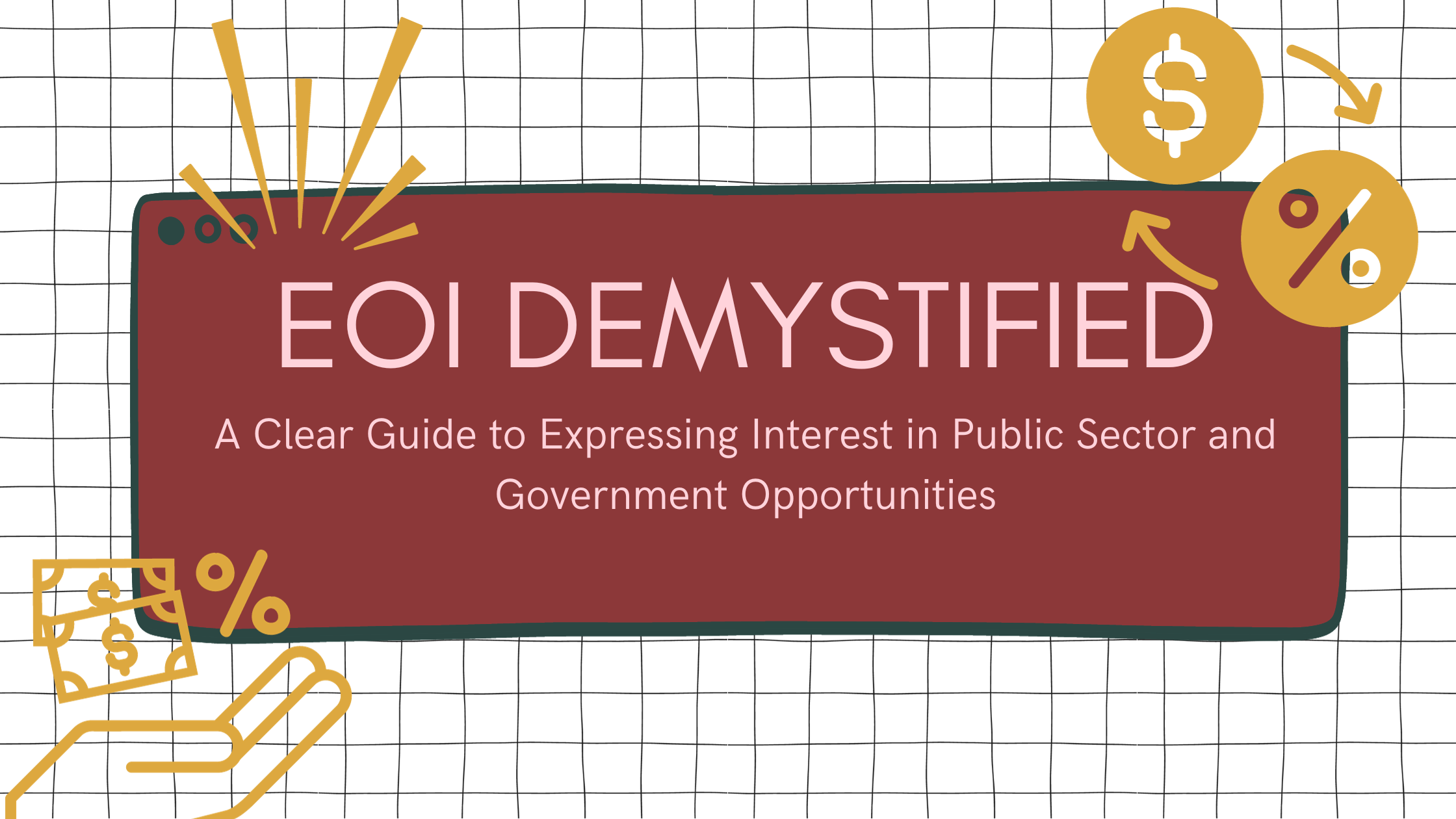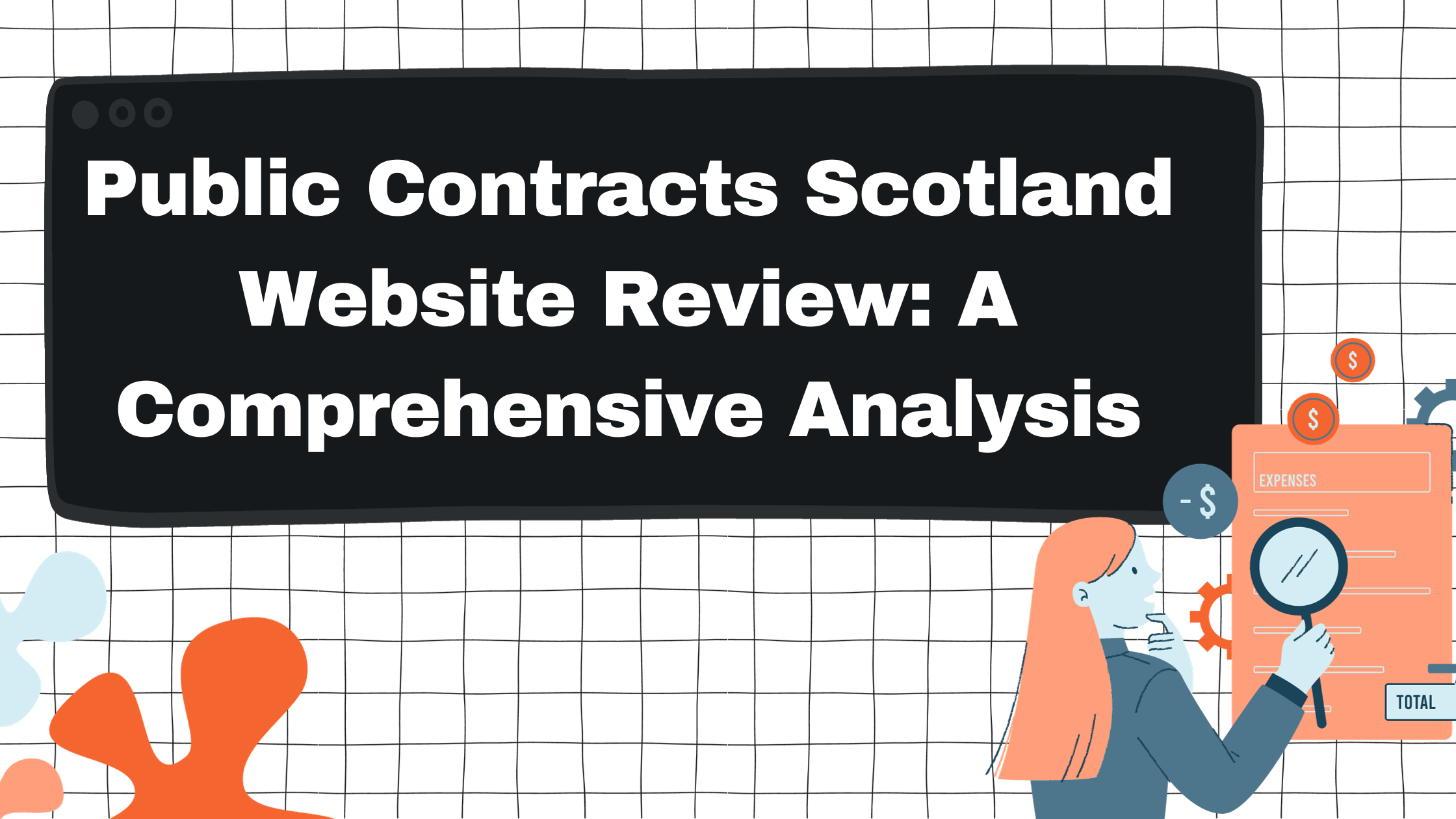Optimized RFP and Proposal Writing Services: Streamlining Your Tender Responses

Need Help with Your Bid?
Get in touch by filling out the form and one of our advisors will be in contact.
Contact Us
When engaging in the Request for Proposal (RFP) process, time is your most valuable asset. Intelligent RFP search tools save time by quickly locating the exact content needed, enabling your team to focus on other priorities. These specialized software solutions function much like a search engine, providing outputs and filtering results based on user input, making the cumbersome RFP process more manageable.

Salespeople and proposal teams benefit immensely from tools like those offered by DeepRFP, which integrates artificial intelligence to streamline proposals, saving valuable hours. Similarly, tools from The Bid Lab offer user-friendly interfaces and access to thousands of RFPs, contributing to an optimized, efficient workflow.
With growing competition and increasing complexity in proposals, leveraging intelligent RFP search tools has become essential. By adopting these advanced solutions, we can gain a strategic edge and improve our chances of winning bids, allowing us to concentrate on delivering quality proposals.
Key Takeaways
- Intelligent RFP tools save significant time for sales and proposal teams.
- AI integration in RFP tools optimizes the entire proposal process.
- Adopting these tools provides a strategic advantage in competitive bidding.
Understanding RFPs and Their Significance
RFPs are pivotal in connecting companies with the right services and products, streamlining procurement, and ensuring quality partnerships. Leveraging AI can significantly enhance the efficiency and effectiveness of the RFP process.
The Role of AI in RFP Search
Artificial Intelligence (AI) transforms how we handle RFPs by automating search and response processes. AI-driven tools can swiftly scan numerous databases, identifying relevant RFPs based on targeted keywords. This speeds up the procurement process and reduces the time sales teams spend searching for opportunities.
AI also enhances the quality of responses. By analyzing past winning proposals, AI can suggest language, metrics, and content that aligns with what clients are looking for. Automated insights can help tailor RFPs to meet specific client needs better, increasing the likelihood of securing the business.
Central Challenges in Managing RFPs
Managing RFPs presents several challenges, especially related to tight deadlines and maintaining high-quality responses. One of the primary hurdles is the sheer volume of RFPs that must be reviewed and addressed promptly. It’s essential to prioritize opportunities that align with our strengths and capabilities.
Quality control is another critical issue. Ensuring consistent, high-quality responses across all RFPs requires coordination among various teams and departments. Tools powered by AI can assist in maintaining this quality by flagging inconsistencies and suggesting improvements based on historical data.
Additionally, the response process can be cumbersome, requiring significant resources and expertise. Properly leveraging AI can alleviate some of these challenges, enabling us to manage our time and resources more effectively.
Key Features of Intelligent RFP Search Tools
Intelligent RFP search tools offer functionalities designed to streamline the RFP process. These tools use advanced search commands, AI models, and automation to enhance efficiency and provide valuable insights.
Advanced Search Capabilities
Advanced search capabilities are essential for any intelligent RFP search tool. This includes phrase search and combination search to find specific information quickly. With these features, we can look for exact phrases or a combination of keywords, filtering through vast amounts of data efficiently.
Using AI models, the search tool provides more accurate results. It learns from past searches and improves over time. This means our searches get more precise, reducing the time spent on finding the right content.
Integration and Automation in RFP Software
Integration and automation are crucial in modern RFP software. Integration with existing systems such as CRM or content management systems ensures a seamless workflow. This way, all our data is centralized, accessible, and secure.
Automation can handle repetitive tasks like document updates and notifications. For example, when a new RFP is available, the software can automatically alert us. This saves time and allows us to focus on more strategic activities.
Analytics and Reporting for Continuous Improvement
Analytics and reporting provide valuable insights into the RFP process. With these features, we can track key metrics and identify areas for improvement. Our RFP software should offer customizable reports and real-time data.
Analytics can help us understand trends, measure response times, and evaluate the effectiveness of our submissions. By leveraging these insights, we can refine our strategies and improve our chances of winning bids.
In summary, intelligent RFP search tools come with advanced search capabilities, integration and automation, and robust analytics and reporting. These key features enhance efficiency and provide us with the tools needed to succeed in the RFP process.
Optimizing the RFP Process
To optimize the RFP process, we need to focus on creating efficient workflows and improving team collaboration. Additionally, adopting best practices ensures higher quality in proposals.
Efficient Workflows and Team Collaboration
Efficient workflows and team collaboration are crucial in managing RFPs. By organizing our content library and maintaining it up-to-date, we reduce the time spent searching for information. With clearly defined roles and responsibilities, our team can streamline the editing and feedback process.
Using cloud-based tools, we can provide access to crucial documents and templates for everyone involved. This not only improves collaboration but also ensures that our product information is consistent across all proposals. For auto responses, integrating AI solutions can further enhance speed and accuracy.
Regular meetings improve communication and allow us to address any bottlenecks in the workflow. By implementing a knowledge management system, we store past proposals and responses, enabling us to reuse and refine high-quality content efficiently.
Best Practices for Higher RFP Quality
To ensure higher RFP quality, we must adopt certain best practices. First, we should always tailor our proposals to the specific needs of each client. This means avoiding generic responses and focusing on the client's requirements and pain points.
Editing and reviews are essential for catching errors and ensuring clarity. Having multiple team members review the proposals before submission can significantly improve quality. Utilizing professional services for final edits can further polish the documents.
Additionally, staying updated with industry trends and standards helps maintain the relevance of our proposals. Continuous improvement through feedback allows us to adapt and refine our strategies, leading to higher-quality submissions. Incorporating these best practices will help us consistently produce professional and compelling RFPs.
Leveraging RFP Search for Strategic Advantages

RFP search tools are transforming strategic approaches in various industries, including B2B SaaS platforms and banking. They play a significant role in optimizing cost, enhancing productivity, and driving accurate demand forecasting.
Impact on B2B SaaS Platforms and Banking Industry
In the B2B SaaS sector, intelligent RFP search tools increase efficiency by automating tasks. They streamline contract management and reduce production costs through precise automation. Sales teams can quickly locate relevant data, accelerating the process and improving our chances of winning contracts. This ensures that our SaaS products are tailored to meet our clients' specific needs and requirements.
In the banking industry, these tools help categorize and analyze spending patterns. Generative AI enhances the precision of demand forecasts, making sourcing and supply chain control more effective. Banks leverage this technology to stay competitive and responsive to market shifts, optimizing their resources and maintaining a strategic edge.
Future of RFP Search in Business Development
The future of RFP search is promising, especially with the integration of advanced generative AI. These tools will further simplify RFP document reviews, allowing teams to focus on value-driven tasks. Enhanced intelligent search can provide customized RFP responses using data from thousands of prior RFPs, improving accuracy and relevance.
For SMEs and larger enterprises, automated RFP search translates into faster, more timely responses. This technology can aid in securing grants and improving communication with vendors and partners. By offering live demos and real-time search capabilities, businesses can enhance their business development strategies.
With these advancements, businesses across various sectors will gain a strategic advantage, leading to more contact opportunities and a more streamlined operational experience.
Frequently Asked Questions
We have gathered essential questions about using technology, AI, and various strategies to enhance the RFP process. Our answers offer practical solutions and insights for improving efficiency in both the public and private sectors.
How can you utilize technology to streamline the procurement RFP process?
Modern RFP software allows us to automate many repetitive tasks. It can manage the tracking of deadlines, organize documents, and even enable real-time collaboration among team members. This greatly reduces the time we spend on administrative duties.
What are the advantages of using a specialized RFP database over a general search engine?
A specialized RFP database targets and filters results specific to our needs, increasing efficiency. Unlike general search engines, these databases provide advanced search functionalities and often include detailed information on each RFP’s requirements, timelines, and submission guidelines.
What resources are available for finding government sector RFPs efficiently?
Websites dedicated to government procurement often list RFPs by state or municipality. We can also search for terms like contracts, procurement, and invitations to tender on these sites to find relevant opportunities. Some platforms offer email alerts for new listings, helping us stay updated.
In what ways can AI enhance the search and response process for RFPs?
AI technology can analyze past RFP responses to help us generate more accurate and competitive proposals. It can also recognize frequently asked questions and auto-populate answers, saving us valuable time. Additionally, AI-driven search options help filter and focus on the most relevant RFPs.
What strategies can be employed to uncover RFP opportunities within the private sector?
Networking and maintaining relationships with vendors and industry professionals can provide us with inside information on upcoming RFPs. We can also regularly visit company websites and sign up for newsletters that may announce new RFP opportunities within our industry.
How can social media platforms like LinkedIn be leveraged to discover RFPs?
LinkedIn can be a valuable tool for uncovering RFPs. By following companies in our industry and joining relevant groups, we often receive updates on new opportunities. Furthermore, we can use search features to find posts and discussions about upcoming RFPs from potential clients.
Ready to start your search?
Get in touch by filling out the form to the right and one of our advisors will curate a personalised selection for you.
Get in touchBlogs. Guides. Helpful advice.

Mastering Proposal and RFP Writing for Government and Public Sector Opportunities

Proposal and RFP Writing Services: Enhancing Public Sector Tender Outcomes

.svg)